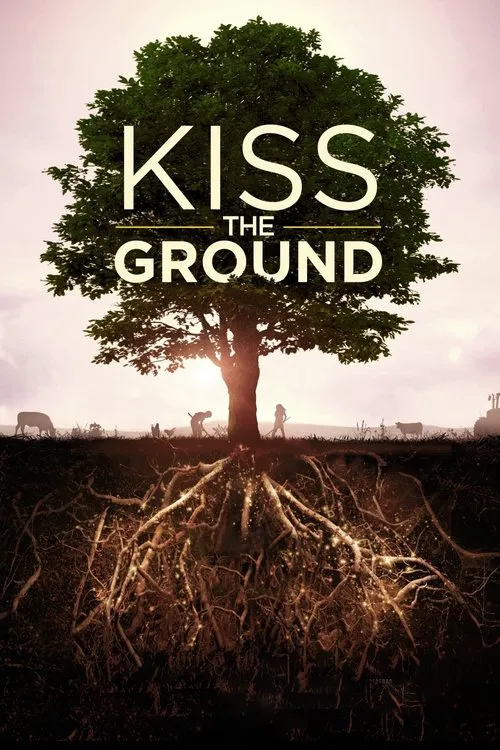Kiss the Ground

Plot
In 'Kiss the Ground,' the viewer embarks on a fascinating journey through the eyes of one man's personal struggle with his father's troubled past and his own sense of belonging in the world, but what unfolds is a profound journey into the realm of regenerative agriculture, a transformative practice that holds the key to healing the earth's depleted soil and addressing the pressing issues of our time. The film's narrative centers around Ray Archuleta, a USDA soil conservationist, who, after being laid off from his job, embarks on a quest to unravel the secrets of the seemingly impenetrable top layer of soil that lies hidden beneath our feet. Ray is driven by a deep sense of curiosity and his desire to find alternatives to the conventional practices of modern farming that are depleting the world's soil, contaminating our waterways, and contributing to climate change. Through a series of striking visuals and compelling interviews, the film introduces us to regenerative agriculture – a holistic approach to farming that is deeply rooted in the principles of ecology and sustainability. The concept is simple yet profound: regenerative agriculture seeks to regenerate the health and fertility of the soil by employing natural methods of farming that encourage biodiversity and carbon sequestration. Ray's journey takes him to various parts of the world, from the lush pastures of Argentina to the dusty farms of Oklahoma, where he meets a diverse cast of characters who are all part of the regenerative agriculture movement. There is Joel Salatin, a charismatic farmer from Virginia who has built a sustainable empire on the principles of polyculture and crop rotation. There is also Gabe Brown, a Nebraska farmer who has transformed his parched and barren land into a thriving ecosystem that supports an incredible array of crops and livestock. As the film delves deeper into the world of regenerative agriculture, it becomes clear that this practice is not just about farming – it's about transforming our relationship with the natural world and finding new ways to live in harmony with the planet. Regenerative agriculture is a philosophy that sees the soil, the air, the water, and the animals as interconnected and interdependent. It recognizes that our actions as farmers and consumers have a profound impact on the health of the planet and that by adopting more sustainable practices, we can create a world where the air is clean, the water is pure, and the soil is rich and fertile. The film also sheds light on the personal stories of the people involved in the regenerative agriculture movement – farmers, ranchers, and scientists who are all driven by a shared sense of purpose and passion. These individuals are not just growing crops and raising livestock; they are creating entire ecosystems that support life and promote biodiversity. Through a combination of stunning visuals, compelling interviews, and personal storytelling, 'Kiss the Ground' presents a compelling case for why regenerative agriculture is the future of farming. This approach to agriculture is not just about growing crops and raising livestock – it's about creating a world that is more sustainable, more resilient, and more just. By adopting regenerative agriculture practices, we can mitigate the effects of climate change, replenish our water supplies, and ensure that future generations have access to fertile soil and a healthy planet. Ultimately, 'Kiss the Ground' is a film about hope and renewal – a testament to the power of human ingenuity and the beauty of the natural world. As the viewer leaves the theater, they are left with a deeper appreciation for the intricate web of relationships that binds us to the earth and a renewed commitment to creating a more sustainable and equitable world. The film ends on a hopeful note, suggesting that we can indeed create a world where the ground is kissed, the earth is healthy, and our future is bright.
Reviews
Recommendations




